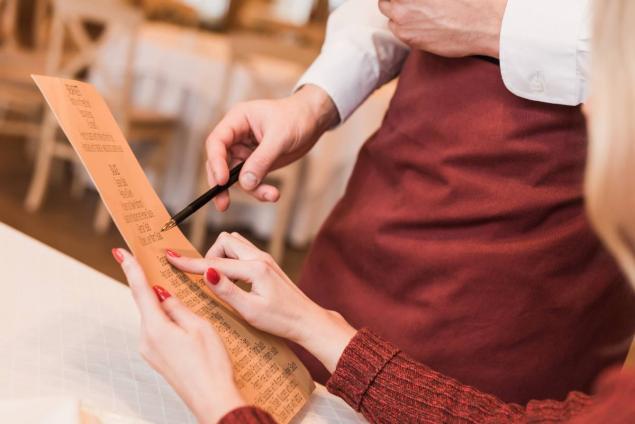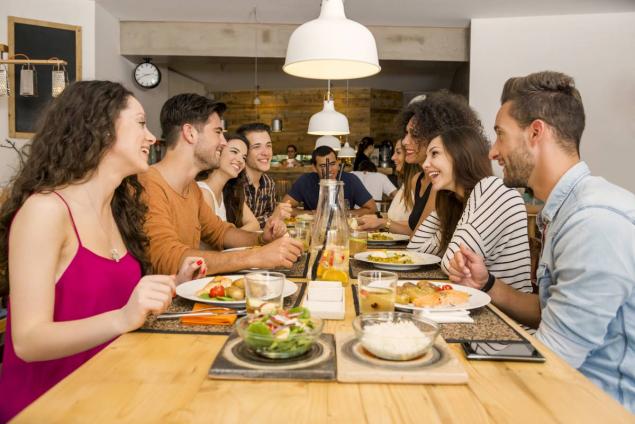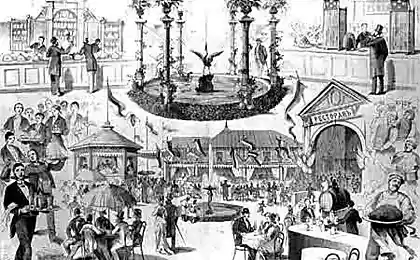200
Retired chef reveals why every restaurant has its own homeless person
A restaurant customer may look different. However, the staff always notice that all clients are divided into several psychotypes. Correct definition of the client’s psychotype simplifies work and prevents conflicts. Today, you will learn that skill.

Violation of order for them is unacceptable: the wrong glass, the wrong serving can lead the pedante infuriated. And yet, the pedant doesn't like conflict. After the incident in the establishment, this poor fellow will replay the course of events over and over, trying to come up with a more appropriate phrase to speak out. As a rule, the client does not have time to find words and feels humiliated. When a pedant finds an institution where everything suits him, he will become a regular of this place.

This visitor's actor can be seen from afar. He's always the center of attention. This person attracts the views of others, he can be dressed in a pretentious bright suit or vice versa to dress up with a needle with taste. Such customers talk loudly, react inadequately to uncomfortable situations. Single actors direct their energy to the staff. Such people do not need to cause discontent of other visitors, and this will only encourage the actor to continue theatrical production.

A conformist, “I’ll do the same,” can be heard from such a visitor. This person feels uncomfortable alone, he is more comfortable in the company of friends. The conformist avoids communication with the staff and shifts this responsibility to his friends. Alone, the conformist is nervous, can not long decide on the order. In this case, the waiter can simplify the task and offer a signature dish.

Single person does not like cramped and noisy establishments. He comes to the restaurant to think over a cup of coffee. Such people seem detached, but do not need to be taken personally. A loner comes to the restaurant as intended, drink coffee, eat soup. He will not be verbose when asked about the quality of service, and will be grateful if this question is not at all.

He is friendly and does not mind talking to the staff. An optimist usually orders too much food that he cannot eat. The waiter should be attentive, as the optimist can quickly change his mind and change his order. Light-thinking is the only drawback of such a client, in general, the optimist does not create problems.

Restaurant workers always give this person something. This is a man with a difficult fate. But at the same time he is very kind and positive. If there is no such client in the institution, you can be sure that the waiters feed the local cats. What are the guests?

As you can see, observation bears fruit. It’s always interesting to see people and see something new. Interesting characters highlighted on his Facebook page Evgeny Klopotenko. What types of clients would you identify in the institution? Share your thoughts in the comments. Have a good day.

Violation of order for them is unacceptable: the wrong glass, the wrong serving can lead the pedante infuriated. And yet, the pedant doesn't like conflict. After the incident in the establishment, this poor fellow will replay the course of events over and over, trying to come up with a more appropriate phrase to speak out. As a rule, the client does not have time to find words and feels humiliated. When a pedant finds an institution where everything suits him, he will become a regular of this place.

This visitor's actor can be seen from afar. He's always the center of attention. This person attracts the views of others, he can be dressed in a pretentious bright suit or vice versa to dress up with a needle with taste. Such customers talk loudly, react inadequately to uncomfortable situations. Single actors direct their energy to the staff. Such people do not need to cause discontent of other visitors, and this will only encourage the actor to continue theatrical production.

A conformist, “I’ll do the same,” can be heard from such a visitor. This person feels uncomfortable alone, he is more comfortable in the company of friends. The conformist avoids communication with the staff and shifts this responsibility to his friends. Alone, the conformist is nervous, can not long decide on the order. In this case, the waiter can simplify the task and offer a signature dish.

Single person does not like cramped and noisy establishments. He comes to the restaurant to think over a cup of coffee. Such people seem detached, but do not need to be taken personally. A loner comes to the restaurant as intended, drink coffee, eat soup. He will not be verbose when asked about the quality of service, and will be grateful if this question is not at all.

He is friendly and does not mind talking to the staff. An optimist usually orders too much food that he cannot eat. The waiter should be attentive, as the optimist can quickly change his mind and change his order. Light-thinking is the only drawback of such a client, in general, the optimist does not create problems.

Restaurant workers always give this person something. This is a man with a difficult fate. But at the same time he is very kind and positive. If there is no such client in the institution, you can be sure that the waiters feed the local cats. What are the guests?

As you can see, observation bears fruit. It’s always interesting to see people and see something new. Interesting characters highlighted on his Facebook page Evgeny Klopotenko. What types of clients would you identify in the institution? Share your thoughts in the comments. Have a good day.
What happens if you do not remove the shelter from the roses in time after the abnormally cold February
Why does the orchid turn treacherously yellow?























